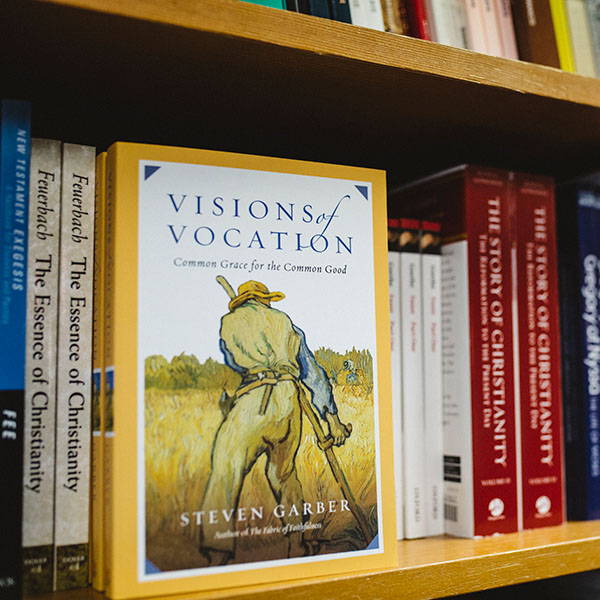Conspiracy Theories & Christians

I am only too aware that I am sailing into rather turbulent waters in engaging this topic. Sadly this topic usually has people talking past each other. However, I am engaging this topic in a very particular and limited way. All I am offering is a beginners attempt to understand why some Christians seem to be drawn to conspiracy theories. Thus, I am seeking to be a sympathetic listener and prober. Whether I have listened well and in a discerning enough manner, remains to be seen.
Let me first of all get a couple of basic points out of the way. I am not at all implying that only Christians are drawn to conspiracy theories. I am not implying that Christians who embrace certain conspiracy theories are irrational. And I am also not implying that conspiracy theories don’t contain some elements of credibility.
More importantly, I am not suggesting that what I am saying is the only way to explain why some Christians are into conspiracy theories. There are many explanations. Some suggest that it is entering an intoxicating powerful “game.” Others, that it a projection of one’s inner fears and insecurities. Others again, propose that it draws “vulnerable” or “isolated” people into a community of common interest and concern as one joins “fellow” conspiracists.
But there are other reasons. Some find conspiracy theories attractive because one gains inside knowledge that others don’t possess – a repetition of the attraction of ancient Gnosticism with its esoteric knowledge. Others are drawn to these theories because one lives with an existential sense of dread that the world is heading for disaster. And of course, there are some who have no driving reasons for engaging these theories, they just “fall” into them.
Finally, it must be acknowledged that while there may be commonalities, in that similar factors may be at play, it is also possible that there are as many differing elements at play as there are people who embrace conspiracy theories. And obviously, much more research needs to be done in this area.
History abounds with conspiracy theories and contemporary theories have to do with persistent antisemitism, climate change, a new world order, and the covid pandemic, among others.
Here then is my attempt to sketch some factors that may be at play when some Christians are attracted to conspiracy theories.
1. Christians are familiar with all sorts of cataclysmic events in the Bible – Noah’s flood, the Babylonian captivity of the people of Israel, the foretold persecution of the followers of Jesus, and the Rapture and the end of the world as we know it. This may play a part in one’s orientation to living in the fear of or the anticipation of other cataclysmic events in one’s life-time.
2. Christians are shaped by the notion that through the revelation of God’s Word, they have inside knowledge into the real state of the world, the unfolding of history, and the end of the world. This may be a conditioning factor in making them open to seeking to understand more of what may be happening in the world that other people don’t see.
3. The biblical narratives are full of the redemptive purposes of God in saving a lost and decadent humanity, and the call of the people of God to help save humanity. This may cause some to be ever probing the “dark side” of the world in order to be a prophetic voice of hope and redemption.
4. Scripture gives a lot of attention to the reality of evil, the role of Satan, and the nature of the fallen powers. It is therefore not surprising that there are Christians who are oriented to seeing only what is bad in our world and fail to see God’s goodness expressed in human affairs.
5. With the loss of the influence of the church in the Western world and its contemporary internal vulnerabilities, there could well be zealous Christians who have taking on the prophetic mantel of knowing what is bad and what needs to change because their fellow Christians have “dropped the ball.” It may be that their very zealotry becomes a blind spot. This may open them up to probe the “dark matter” of conspiracy theories.
6. And finally, there are Christians who have a fundamental problem with contemporary institutions and politics. These are seen only through the prism of the misuse of power, the manipulation of information, and various forms of coercion. If all is negative then conspiracy theories may be a source of hope.
There is much more that could be said in this space. But enough for now. I welcome the reflection of others.
But I would like to make some constructive suggestions.
First of all, the faith-community, centered in the redemptive work of Christ which gives it its most fundamental cohesion, is a community of diversity. There are those who hold just-war concepts and others who are pacifists. And there are different beliefs about the end of the world and God’s final future. And there are those who hold various conspiracy theories and those who don’t. At the same time, members of the faith-community are committed to Christian maturity and to a process of a common out-working of the implications of faith in Christ for every domain of life. Thus, those in the faith-community seek a common truth in Christ and its relevance for all of life. This involves a common journey of learning, conversation, reflection, and mission. Not enough of this takes place in many churches.
Secondly, one of the great weaknesses of contemporary Western Christianity is its lack in forming people into the faith. And there is little discussion in the church regarding a theology of culture and understanding the relationship between church and state. In many ways the church has left its members as orphans. The church stresses belief in Jesus and church attendance, but people are largely on their own in having to negotiate one’s way in the world in the light of faith. Thus, we have done poorly in assisting our members. Little wonder then, that people in having to find their own way are attracted to ideas and projects that are not well-grounded theologically.
And thirdly, the faith-community does live its life in the call to love, which opens up all possibilities of reconciliation, and in the presence of the ever-brooding Spirit who leads us all into the light of God’s countenance.
Sectarian movements are often the sins of the church. The fact that Christians are attracted to conspiracy theories may well be a wake-up call for the church to do some serious re-thinking regarding the way in which all need encouragement in thinking through the dynamics of faith for all of life. And the call to find a common mind and a common way of life in Christ, is ever the invitation.
Charles Ringma


